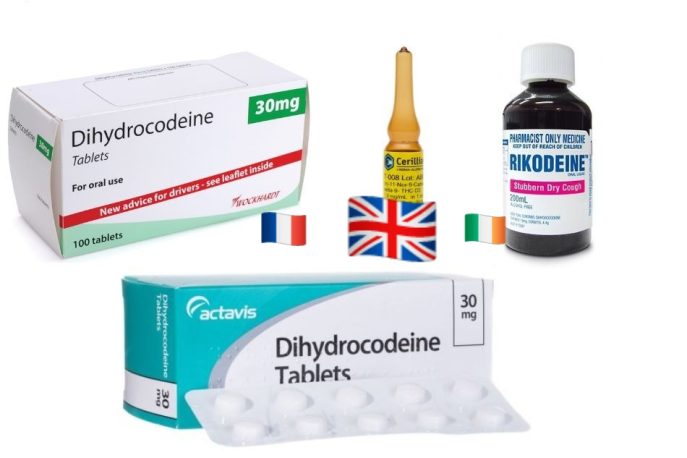- Your cart is empty
- Continue Shopping
What is Dihydrocodeine?
- Dihydrocodeine is an opiate painkiller
- It is used for moderate to severe pain
- Dihydrocodeine can be mixed with paracetamol in certain preparations such as co-dydramol
- Both short acting and sustained release dihydrocodeine is available
- Dihydrocodeine is sometimes known by its trade names DHC Continus and DF118 Forte
- It is important to read the patient leaflet for a full list of side effects and cautions.
How Does Dihydrocodeine Work?
Dihydrocodeine is a semi-synthetic form of opioid pain relief. It works by blocking the signals that are sent from the area of pain to the brain. This means that your sensation of the pain is either reduced or eliminated.
it does not treat the cause of the pain, but it may help you to feel more comfortable whilst recovering from an injury or operation.
Minimising pain is helpful for recovery. If you are able to mobilise then your risk of a post-operative blood clot will be reduced. You may also be able to cough more comfortably to prevent a chest infection after an operation. Buy Dihydrocodeine 30mg online
How is Dihydrocodeine Taken?
Dihydrocodeine Tablets
it is available as a tablet or liquid. The tablets should be swallowed with water.
It is advisable to take dhc with a meal or snack, as this may reduce the risk of side effects including nausea or vomiting.
What is the dosage of Dhc?
Dhc 30mg
A common dose of standard release dhc is 30mg taken every 4 to 6 hours. The maximum dose across 24 hours is 180mg. Standard dhc takes around two hours to begin working fully.Buy Dhc 30mg online
Slow release tablets are also available. The dose of dhc begins working more slowly, but has a longer pain-relieving effect. This means the tablets can be taken less frequently. The usual dose of slow release dhc s 60mg to 120mg taken twice a day.
What are the side effects of Dihydrocodeine?
Like all medications, dhc can have some side effects. The most common side effects include:
- Constipation
- Nausea or vomiting (feeling sick or being sick)
- Headaches
- Feeling sleepy
- Confusion
- Feeling dizzy
- Dry mouth.
If these side effects don’t settle or are troublesome, speak to a healthcare professional for advice.
Rarely, serious side effects can occur when taking dhc . These include:
- Feeling dizzy or tired due to low blood pressure
- Stiff muscles.
You should speak to a doctor if these side effects occur.
You should call 999 if you have a seizure or fit, or if you have difficulty breathing when taking dihydrocodeine.
If you have a severe allergic reaction (anaphylaxis) including breathlessness, lip or tongue swelling, call 999 immediately.
- Confusion

Dihydrocodeine may not be suitable for everyone. You should tell your doctor if you have:
- Inflammatory bowel disease such as Crohn’s disease or ulcerative colitis
- Irritable bowel syndrome
- Lung disease including asthma
- Liver or kidney disease
- A head injury
- Seizures or fits
- Thyroid disease
- Myasthenia gravis
- Galactose intolerance
- Obstructive sleep apnoea
- Alcohol or drug addiction Dihydrocodeine may not be suitable if you are pregnant, trying to conceive, or breastfeeding.
Some medications can interact with dhc. You may be advised that dhc will not suit you if you already take.
